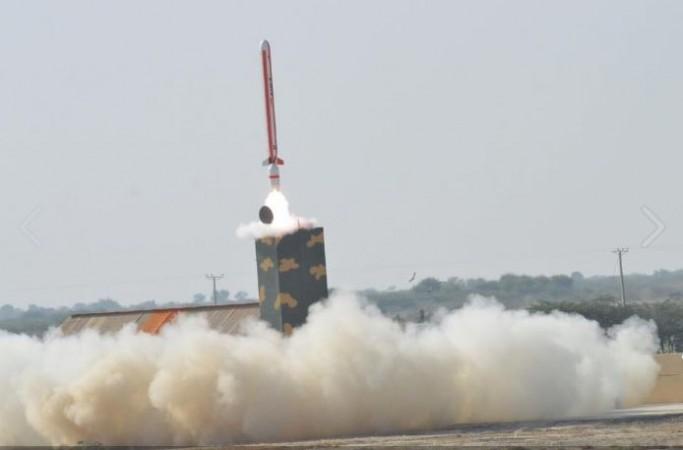
Pakistan successfully tested an enhanced version of Babur cruise missile on Wednesday, Inter-Services Public Relations (ISPR) said in a statement. The missile, according to the statement, has been indigenously developed.
Dubbed Babur Weapon System Version-2, it has a range of 700km and can strike targets on both land and sea with "high accuracy." The advanced version includes advanced aerodynamics and avionics. It can also fly low and is a terrain hugging missile.
The missile according to ISPR has "certain stealth features" and can carry various types of warheads, which means that it can be armed with conventional or nuclear warheads.
On the navigation front, the missile is equipped with state-of-the-art navigational technologies of Terrain Contour Matching (TERCOM) and all time Digital Scene Matching and Area Co-relation (DSMAC). These navigational systems will enable the missile to work even at places where GPS navigation is not possible and will provide it with "pinpoint accuracy."
The missile can be fired from ground-based mobile transporter erector launchers (TELs), which can hold four such missiles. It has been touted as an important force multiplier for Pakistan's strategic defence.
Pakistan's new Chairman Joint Chiefs of Staff Committee General Zubair Mahmood Hayat has congratulated the scientists and engineers for success in this milestone event for Pakistani defence.
Pakistan successfully test Babar Cruise Missile https://t.co/JpHpVA5M4F
— ISPR (@ISPR_Official) December 14, 2016
The missile test was witnessed by senior officers of the strategic plans division, strategic forces, and scientists and engineers of the strategic organisations.
Pakistani authorities failed to notify India about the missile test since the current bilateral agreement between the two countries on missile notification does not cover cruise missiles. The bilateral agreement covers only the ballistic missile tests.
Pakistan claims that Babur was an indigenous making, but reports from defence publications point fingers at its foreign sources. One such is the Kh-55SM/Korshun LACM, which was developed by a Ukraine-based design bureau. It was reported that Pakistan bought detailed production engineering data from Ukraine in 2001. It has also been speculated that Pakistan could have reverse-engineered BGM-109 Tomahawk cruise missile, after six of them fell in its territory in 2001, when US was conducting airstrikes in Afghanistan.
India is testing Nirbhay cruise missile, which has a range of over 1,000km. India is also gearing up to test intercontinental ballistic missile Agni-V, which has a range of over 5,500km.

















